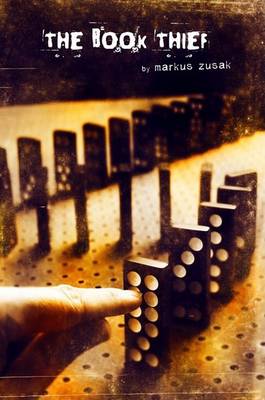Reviewed by ibeforem on
'Summer came.
For the book thief, everything was going nicely.
For me, the sky was the color of Jews.'
For me, an interesting aspect of this book is the view of the life of a young German living in poverty in Hitler's Germany. I have read a lot of Holocaust literature, but very little from the German point of view. And there is a good mixture of points of view here. You have Germans from both sides of the line -- those who would help the Jews, and those who would throw things at the helpers and scream 'Jew-lover'. Yet even the screamers have their softer sides.
Though the book is about Liesel, the book thief, one of the more interesting characters is Hans, her foster father. He is the one who makes it possible for Liesel to develop the love of books and words that eventually saves her life. He makes it possible for Liesel to love anyone at all, with his patience and compassion. And he's the subject of one of my favorite descriptions in the entire book:
'Papa sat with me tonight. He brought the accordion down and sat close to where Max used to sit. I often look at his fingers and face when he plays. The accordion breathes. There are lines on his cheeks. They look drawn on, and for some reason, when I see them, I want to cry. It is not for any sadness or pride. I just like the way they move and change. Sometimes I think my papa is an accordion. When he looks at me and smiles and breathes, I hear the notes.'
One of the things that really made this book come alive for me is something that you won't get if you're listening to it on audio, or perhaps even reading the ebook (depending on the format). At one point, Max, the Jewish man living in Liesel's basement, paints over the pages of his copy of Mein Kampf and writes and illustrates a story for Liesel. In the book you are treated to this story, complete with the faded words of Mein Kampf in the background. It was something so minor, but so powerful for me.
There *are* aspects to the book that are weak. The whole plot line with the mayor's wife comes off as a little undeveloped, and when Liesel decides to write her own life story, it's rushed through and then forgotten in the rubble. There are a few unanswered questions that I really wish had been answered, but I guess it's those unanswered questions that keep us thinking about a book long after we've closed it. Overall, I loved it.
Reading updates
- Started reading
- 10 December, 2009: Finished reading
- 10 December, 2009: Reviewed
